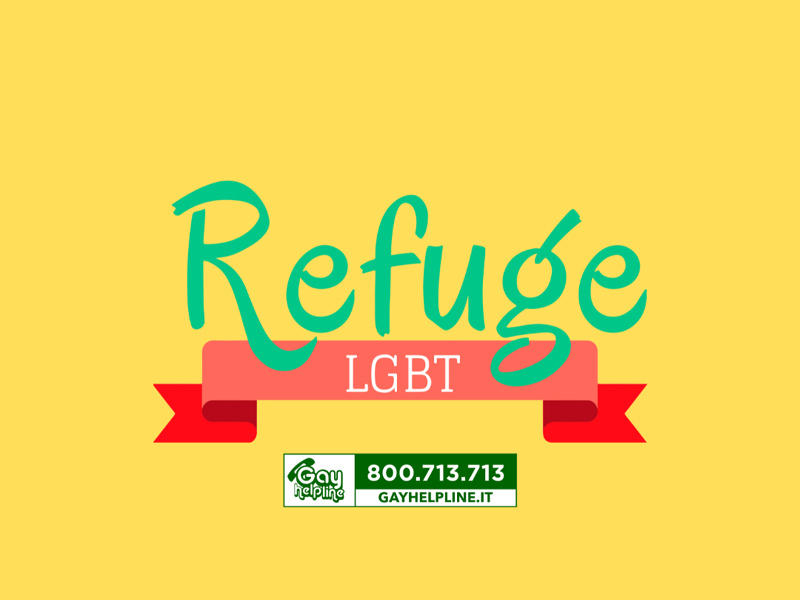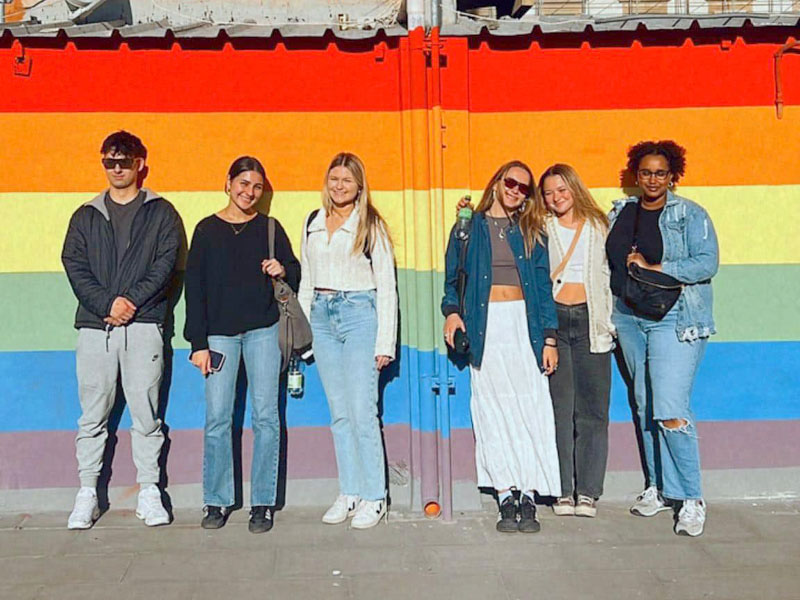On the International Day against Homophobia, Biphobia and Transphobia – 17 May – we interviewed Gay Help Line Coordinator Alessandra Rossi and Marina Marini in charge of “Refuge LGBT+” for the project called “Accoglienza per LGBT+ vittime di violenza” (Protection for LGBT+ people who are victims of violence), financed with 8×1000 funds of the Soka Gakkai.
The project supports young people aged 16-26 who are forced out of their homes or victims of violence and abuse within their families because they are LGBT+ people.
On 17 May 1990 the word homosexuality was canceled from the World Health Organization’s list of mental illnesses and for this reason this day was chosen as International Day against homophobia, biphobia and transphobia. What is the current situation in Italy and what are the most important aspects to focus on in the fight against homo/bi/transphobia?
Through the Gay center we listen to many stories everyday; it is as if we had a barometer of everything that goes on in society regarding this issue.
May 17 is a meaningful date because that’s when it was recognized that a non-heterosexual orientation has nothing to do with a clinical condition.
Strong societal pressure – stemming from stereotypes and prejudice – still influences our relationships and the way we think. Not being “foreseen”, having to face the challenge of coming out and often being met with rejection: this has an impact on all aspects of a person. Defining one’s sexual identity is not of secondary importance.
Not having the possibility to do so means not being able to identify fully in society as a person who can give a valid and shareable contribution on the job, in family relationships or in the public social dimension.
There is an impact also on language, because the very words used to greet us tend to exclude us. Starting from language, we can all can always do something against homophobia.
Combating homophobia requires raising awareness among a growing number of people. What is Gay Center/Gay Help Line’s mission?
Gay center is a safe place where people can learn to be themselves as LGBT+ people and recognize their own value, where they can find others who recognize their needs and accompany them in society.
For example, if a person is rejected after coming out, it is important to work on the context. Our mission is to raise awareness in every person, as it is not true that certain issues don’t concern us if we are not LGBT+ people: they concern everyone.
Our mission is working towards equality, because it is important for us all to be equally able to express our differences, claim them and live with them.
At the Gay center we support LGBT+ people by listening to their requests for help and we respond in various ways: legal support, counseling, identity and gender health, gender medicine, women’s health, etc.
“Refuge LGBT” is the first shelter for young LGBT+ people who are victims of homophobia, biphobia and transphobia within their families, who have suffered violence and have been abandoned by their families. It offers shelter, legal and psychological support and helps youth reach independence. How and why did the project start?
Discrimination within one’s family is clearly the most traumatic kind. In some cases boys and girls have to leave or are made to leave.
“Refuge” is a shelter, a place where safety and protection can be found by boys and girls aged 16-26 who have been victims of discrimination or both psychological and physical violence at home. There is a family mediation service aimed at reconnecting and rebuilding trust. Continuous support is needed so as to actually create a true bond within the family, or at least avoid breaking it completely.
Families are safe places that people always yearn to go back to. Refuge does not present itself as an alternative to family. Rather, it helps recovering family relationships through mediation.
When we meet with parents, the first thing that emerges is fear, which stems from their image, their projection of their child. We provide scientifically sound information, because often what parents look for is confirmation of what they already fear.
We support them in deconstructing this dreadful image of their child’s future and help them get to a point where they can believe a happy future is possible.
What we do is limit their fear and transform it into a positive possibility.
Gay Help Line is the national contact center for gays, lesbians, bisexuals and transsexuals. Besides managing cases of discrimination, violence and bullying, it offers counseling for those who are struggling. The Italian Ministry for Equal Opportunities has mentioned Gay Help Line in its “White book on services” as a reference point for the Italian LGBT+ community. What is this service?
Gay help line is active Monday through Saturday from 4 to 8 pm. We are there every day to let people express on the phone or via chat those things that otherwise they wouldn’t say. The added value of this service is that we listen.
From the stories we hear, we learn that there is still so much that goes unseen and that deserves to be visible, to be rebuilt and shown in every context. In our country there is no law against homo/bi/transphobia, which in a way means that our weapons are “blunted”. Every time somebody is attacked because of their sexual orientation and their gender identity, they have no specific protection, they are not recognized the right to be defended as a homosexual or transgender person. This inevitably becomes a wound we carry within us. We work on the social as well as the legal level.
We work on the social as well as the legal level. Being marginalized means you don’t have the same possibilities as others in terms of work, life, relationships. For instance we fight against discrimination when, with the help of the public administration, we strive to obtain an alternative registered address for those persons whose actual home is not safe.
How are the 8×1000 funds of the Istituto Buddista Italiano Soka Gakkai used for these services and what impact do they have?
At “Refuge” we provide various primary and secondary goods, which have a cost. At times boys and girls are forced to leave their houses quickly and arrive at the shelter needing glasses or braces.
They need backpacks for school, a cellphone, a computer… of course very often they need to lower their standards. Public and state funds take months to arrive.
Some are sent away at 14 and they risk getting involved with the wrong people. They end up in group homes that are not adequate so they keep running away from one to the next; they don’t go to school and when they turn 18, they end up on the street.
Until recently at the shelter we mainly had young people older than 18, now we are starting to see minors too. This is a sign of a great change because twenty years ago we wouldn’t have been entrusted with minors.
Of course the Soka Gakkai’s contribution is not just important, it’s fundamental because it enables us to do everything we have talked about, and much more.
Our association is made of people working for people and what we do stems from our desire to support them in their daily struggles, because things aren’t easy out there.
They aren’t easy in general, and even more so for those who have to affirm their gender identity or sexual orientation. Because – as we know – discrimination tends to add up.
We believe that diversity is a key strength and we are determined to spread this conviction among people to achieve a more inclusive society.

